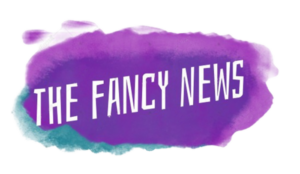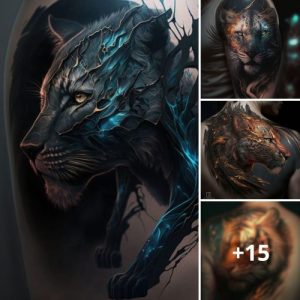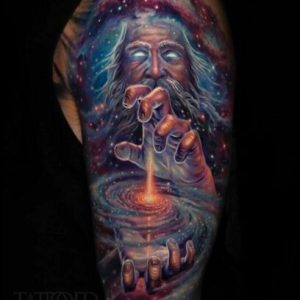
In recent years, face tattoos have transcended their taboo status to become a prominent form of self-expression embraced by both celebrities and everyday individuals. The inked designs that boldly adorn faces have evolved from being perceived as rebellious to being recognized as powerful statements of individuality. This article explores the rich history, cultural significance, and diverse meanings behind face tattoos, shedding light on why they have become an increasingly popular choice for those seeking to make a lasting impact with their ink
Unveiling Centuries of Tradition:
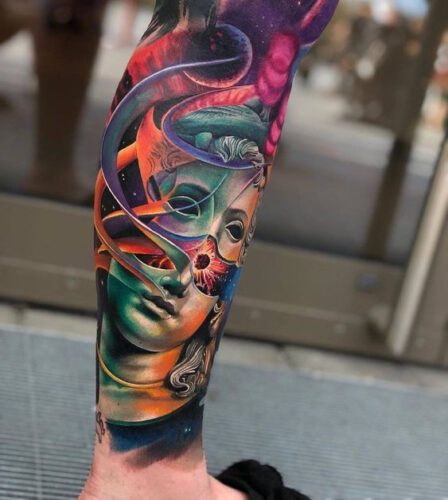
Contrary to popular belief, face tattoos are not a modern phenomenon. They have a storied history, spanning centuries and cultures, where they were employed to signify status, rank, or group membership. A striking example comes from Maori culture, where facial tattoos known as moko were intricately designed to communicate an individual’s social standing and achievements. Understanding this historical context is crucial in appreciating the depth and significance that face tattoos can hold.
Modern Rebellion and Self-Expression:
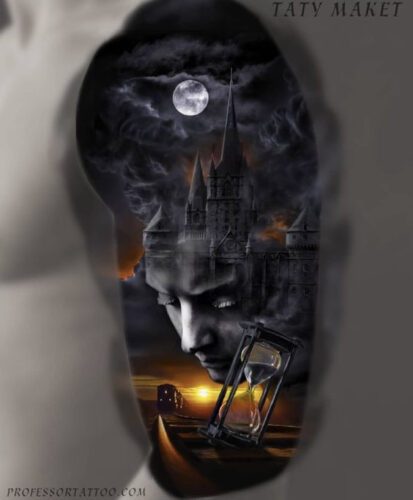
In contemporary society, face tattoos have taken on a new role, serving as a powerful means to break free from societal norms and embrace individuality in an unconventional manner. The decision to tattoo one’s face is often a deliberate choice to defy conformity and express oneself authentically. It is a visual declaration of independence, a canvas where individuals paint their stories, passions, and beliefs.
Honoring and Commemorating:
Beyond self-expression, face tattoos frequently serve as tributes or memorials. They become a permanent canvas for honoring loved ones, commemorating significant life events, or immortalizing the essence of a moment. Singer Halsey’s lightning bolt on her cheek and the word “Mara” above her eyebrow, paying homage to her late friend, exemplify the deeply personal and emotive nature of these facial artworks.
The Post Malone Effect:
The influence of celebrities in popularizing face tattoos cannot be overstated. Rapper Post Malone, adorned with the distinctive “Always Tired” tattoo under his eyes, has turned his ink into a signature look. His bold choice has inspired countless others to follow suit, exemplifying the profound impact a face tattoo can have in shaping cultural perceptions and fashion trends.
Navigating Negative Connotations:
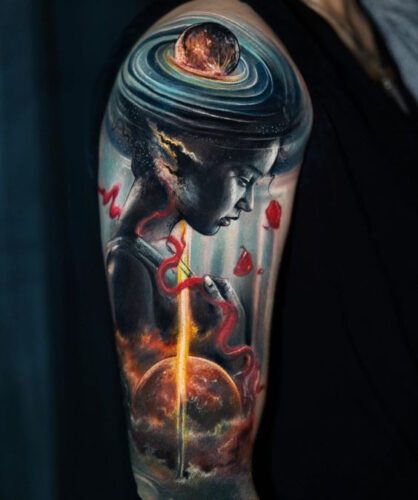
While face tattoos have emerged as a form of self-expression and cultural tribute, it’s essential to acknowledge the potential negative connotations attached to them. Society’s traditional views may cast judgment, and individuals with facial tattoos may encounter stereotypes or bias. Understanding and challenging these perceptions is an integral part of embracing the evolving landscape of body art.
Conclusion:
Face tattoos, once confined to the fringes of societal acceptance, have risen to the forefront as powerful symbols of self-expression, rebellion, and commemoration. Whether inspired by centuries-old traditions or motivated by contemporary influences, these tattoos hold a myriad of meanings that go beyond the surface. As the inked faces of celebrities continue to shape perceptions and redefine norms, the artistry and significance behind face tattoos will undoubtedly persist as an evolving narrative of individuality and cultural expression.
